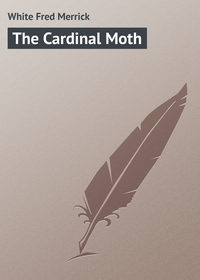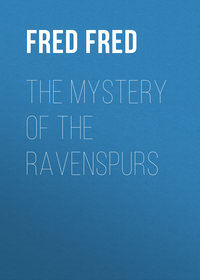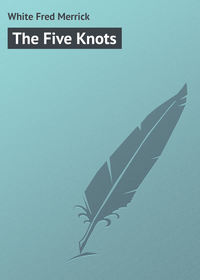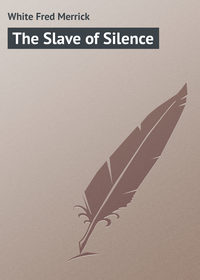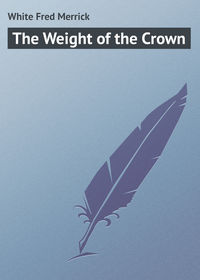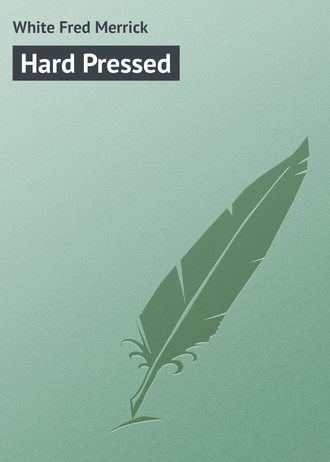 полная версия
полная версияHard Pressed
"But don't you get done?" Phillips asked.
"Well, very rarely," Rickerby responded, "but there are others in the club, who seem to me to lay themselves out for that sort of thing. There's a chap here called Selwyn, a rich young Australian fool, who thinks he knows everything. He's just the type of mark that the broken-down racing man prays for. He's in the hands of one or two here who are robbing him of thousands. He's soft enough to make bets five minutes after a race has been run. I've tipped him a hint once or twice, but bless you, it's no use. It is waste of breath to tell Selwyn that the men in whose hands he is are manipulating the telephone or wire and always betting on a dead certainty. One or two of the bets have been offered to me, but I am not taking any. I daresay you may think I ought to expose these people, but I've got something better to do."
"I should like to ask you one question," Phillips said. "Have you noticed by any chance if the people you are speaking about are particularly lucky in their bets on races run at Mirst Park?"
Rickerby looked admiringly at the speaker.
"Ah!" he exclaimed, "you know more than I gave you credit for, but perhaps you are in the habit of studying this kind of thing. Now I come to think of it, I do recollect hearing it said that Selwyn had dropped a lot of money to these men last Mirst Park Meeting. If you really know anything, Mr. Phillips, I think you ought to say so."
"Oh, I won't go quite so far as that," Phillips said modestly; "it's only an idea that occurred to me which I was reminded of by something I read when I was in South Africa. But mightn't this be a coincidence?"
"I think not," Rickerby replied, "you could hardly say that of a series of bets in which Selwyn always loses and which are never made till after the race is run."
"Extraordinary," Phillips said. "But I can't see how it can be anything more than a mere coincidence. I suppose you do a tremendous lot of late betting."
"My dear sir, that is exactly what the club is for. Some of us wouldn't be able to live without it. But, all the same, we don't bet a second after the official time of starting."
By this time the smoking-room was filling up rapidly. Two or three score of men had come mainly to hear the result of the afternoon's racing and to make their bets up to the very last moment that wagers were accepted. Phillips, apparently perfectly satisfied with what he had heard, lounged in one corner smoking a cigar, watching the crowd of sportsmen keenly out of the corner of his eye. He seemed to have one glance, too, for the weather outside, which had changed somewhat, for the sky was overcast and flakes of snow were falling. A little later the room was almost in darkness and the whole world seemed to be lost in a white drift. The clock over the mantelpiece pointed to nearly twenty minutes past three. The result of the three o'clock race had been announced, and, so far as Phillips could tell, there had not been one sensational incident in the way of a bet.
"Your friend Selwyn is evidently not present to-day," Phillips observed, as Rickerby dropped into a seat by his side.
"Oh, yes, he is," the bookmaker retorted.
"That's very interesting," Phillips said. "I wish you would introduce me to Mr. Selwyn. I think a little later I shall be able to show him a way of saving money."
CHAPTER XV
JOLLY & CO
PHILLIPS slipped out of the club by and by, and for a while walked up and down opposite, studying the building in which the Post Club was situated. It was a large block of offices on five or six floors, mostly given over to merchants and dealers whose business was in connexion with Covent Garden Market. Moving up and down as if waiting for a friend, Phillips was making an exceedingly careful scrutiny of the building.
"It isn't as easy as I thought it was at first," he said. "I've got a pretty shrewd idea, for which I have in the main to thank that snowstorm. It is evident that Rickerby is perfectly right, and that there is some cunning plot afoot to rob this Selwyn. I wonder whether Rickerby was alluding to Raymond Copley. It can't be anybody else. Now it is clear the gang cannot make late bets during a snowstorm or thick mist or anything of that kind. I should like to know how they manage to get the name of the winner into the club before the horse is past the post. But that I must leave for the present. The point I have to find out now is how the man upstairs who comes to do the betting gets his information. If there was another block of buildings opposite the club I could understand it, because it would be easy to signal from one window to another. But there's nothing opposite except the Market with a lot of porters hanging about, and I don't suppose they have anything to do with it. The puzzle beats me for the moment. Still, having got so far, it is hard if I can't get to the bottom of it. The signal must come from somewhere in the block of buildings where the club is situated. Well, that gives me something to go on with anyhow, and I haven't much time to spare, especially as I must meet Fielden to-morrow at Mirst Park. I suppose there is only one thing to do, and that is to find out the name and occupation of every firm which has an office under the roof. The first thing I need is a Post Office Directory."
With the aid of this book he managed to winnow down the doubtful firms to five or six. The rest he found were established houses engaged in legitimate trade, the others being more or less new-comers whose callings were rather nondescript. By a stroke of good fortune, just before five o'clock Phillips obtained the assistance of a clerk in a fruit concern, whose firm was in the block of buildings in which the club was housed, and the doubtful firms were reduced to two. Standing outside looking up at the club, the windows of which were now in darkness, Phillips saw that next door were a couple of windows bearing on their wire blinds the legend, Jolly & Co. There was a light behind the blinds, so that the lettering stood out clear and distinct.
"I think I am getting on," Phillips commented. "Now, how am I going to find out about Jolly & Co.? It is a bit too dangerous to ask casually for Mr. Jolly. But, stop. Most of the people have left, and it is any odds the light has been used by the charwoman who is cleaning out the offices. It won't do any harm to go up and see."
Phillips put his plan into execution. He came at length to the second floor, and stopped at a door at the end of the passage which led to the rooms occupied by the Post Club. On the door the name of Jolly & Co. was painted in white letters. From behind it came the sound of scrubbing. Phillips entered boldly. The room was furnished as an office. There were a table and a chair or two, and in a corner an American roll-top desk. Beside the desk was a telephone which, from its glittering newness, had not been long erected. Attached to the receiver in the place of the usual short flex was a cord at least eight or nine feet long. It was a small matter in itself, but it did not escape Phillips' keen glance. He wondered what it was for. It was certain that it was not attached to the receiver by accident.
In one part of the room an old woman was kneeling down scrubbing the floorcloth.
"Is Mr. Jolly here?" Phillips asked.
"No, sir," was the reply. "He went away early. I saw the key of the office hanging up soon after half-past three."
Phillips smiled. He was beginning to understand now. There had been snowstorms most of the afternoon at intervals, and this, no doubt, had interfered with the campaign against the bookmakers.
"That is very annoying," Phillips said. "I particularly want to see Mr. Jolly. I have some very important business with him. Can you tell me where he lives?"
The old woman shook her head emphatically.
"No, I can't, sir," she said. "I haven't any idea where he lives. And, besides, he is mostly a stranger to me."
"He hasn't been here long, then?"
"No, sir. He came last autumn and, of course, I does for him like I do for the other gentlemen. He stayed till about the end of November, then he told me he had to go abroad for the winter. He has only been back about a week."
Phillips thought his time was not being wasted. Everything appeared to be going his way.
"I am very sorry," he said, "but, really, I must find him. It is most awkward, seeing that he is a stranger to me. Would you mind telling me what he is like? If you can give me a description of him I might make inquiries in the neighbourhood. It is possible he may be in one of the hotels close by playing billiards or something of that sort."
"Well, that's possible," the old woman said. "I know Mr. Jolly is fond of a game of billiards, because my little boy has had to fetch him once or twice. He is young and clean-shaven, looks like a boy almost till you get close to him, and then you can see what a lot of wrinkles he has round his eyes. He might easily be mistaken for an actor. Dresses very well, he does, except he wears a steel watch-chain."
Phillips gave the old woman a shilling and departed. He had found out all he was likely to discover. He had already moved towards the door when a sudden thought struck him.
"Oh, by the way," he said, "I wish you would let me have the number of your telephone. If I can't come here again I shall telephone Mr. Jolly in the morning."
The old woman intimated that the number was on the top of the telephone, and Phillips made a note of it. Then he went away, on the whole very well satisfied with his afternoon's work. He had yet, however, to verify a certain suspicion, and this he could not accomplish till late in the evening. It was eight o'clock or more before he turned into a public telephone call-office and rang up the number which he had copied in Jolly's office. He was not surprised to find that he received no reply, but it was not a reply he was after. What he really wanted was to get in connexion with the Exchange. He managed this presently. It was growing late, and there was no great pressure upon the office.
"I am sorry to trouble you," he said, "but I can't get anything from this number. Can you tell me if Mr. Jolly has a wire between the office and his house?"
The assistant amiably replied she would ascertain. In a few moments she spoke again.
"No wonder you couldn't get a reply," she said. "Jolly & Co. are not connected with the Exchange at all. We switch them on by arrangement for business purposes, but their wire is a private one. It has only been recently erected."
Phillips drew a sharp breath. He was expecting sensational developments, but this information fairly staggered him.
"I am much obliged to you," he said. "But I am very anxious to get on to Mr. Jolly. You say the wire is a private one. I suppose it goes from the office to Mr. Jolly's own house. Where is that?"
"His place is called The Nook, Mirst Park."
Once more Phillips was taken aback. The whole plot was opening up before his eyes. Many important matters remained to be cleared up, but he felt he was getting on with a vengeance.
"I didn't know where he lived," he said, "but many thanks for this information and all the trouble you have taken. Would you mind putting me in connexion with the Nook?"
The assistant was still obliging. For the best part of five minutes Phillips stood there with the receiver at his ear, and the longer he had to wait the more satisfied he appeared to be. Then, presently, the thin voice at the other end of the wire began to speak to him again.
"I am very sorry," she said. "But I have rung half a dozen times and can't make anybody hear. Probably they have left the receiver off the instrument. I can try again presently."
"A thousand thanks," Phillips said. "But I won't trouble you. I'll call round at the office in the morning. What a stroke of luck! Now for Mirst Park."
CHAPTER XVI
THE NOOK
ON second thoughts, Phillips deemed it more prudent to remain in town overnight. There would be no difficulty in reaching Mirst Park to-morrow in time to open his campaign. Besides, when he came to think it over there were a good many things yet to be done. He ate his modest dinner in his modest lodgings and then sat down over a cigarette to think out the result of his day's work. The more he cogitated the more satisfied he was with his rate of progress.
He had got past the age when a man burns for revenge and that sort of thing. He infinitely preferred to make Copley smart and put money in his own pocket at the same time. As for his diamond-mining adventure, he expected to hear no more of that. He had been robbed of his precious plans and had no hopes of seeing his missing portmanteau again, but, like a prudent man, he was not inclined to cry over spilt milk.
He had thought it all out before morning, and shortly after ten o'clock set out to call upon Major Carden again. To his surprise he found that the Major had already breakfasted and was making preparations for going out. A big fur coat was carelessly thrown across an arm-chair, and Phillips smiled when he saw it. Probably the Major had struck a prosperous line. Possibly some of the ten-pound note had been laid out at an adjacent pawnbroker's.
"I didn't expect to see you this morning," the Major said genially. "Most infernally cold, isn't it? Looks like snow, too. Still, one must take the rough with the smooth when one goes racing."
"So you are going racing?"
"Well, I had thought of it. I don't often get the chance of treating myself, and my idea was to run down to Mirst Park this afternoon. You're going, aren't you?"
"Oh, yes, I am going down on business. But I wanted you to stay in town and do a little commission for me."
The Major's florid face fell.
"That is very awkward," he muttered. "You see, I promised to take my daughter with me. She is fonder of that kind of thing than I am, and the poor child seldom has an outing. In the old days of my prosperity Alice had her own horse, and deuced good across country she was. Can't you manage to put it off till to-morrow, Phillips? I shall be greatly obliged if you can."
Phillips reflected for a moment.
"Very well," he said. "I daresay it can be managed. I will see you on the course this afternoon and let you know what my address is. If you are discreet and cautious over this little matter there is a fair sum of money in it for you. You can drop me a note to-night, because there is no pressing hurry, and you can get the information this evening or early to-morrow. What you have to do is to go round to the Post Club and find out all the heavy bets which were made there with Selwyn in connexion with to-day's racing at Mirst Park. You must let me know with whom the bets were made and who made them. I think that is all. But I shall see you on the course later, and if anything crops up in the meantime I shall let you know."
There was nothing to prevent Phillips from making his way to Mirst Park. Half an hour later he took train from Waterloo and, arrived at his destination, proceeded to look out for lodgings. He had his own reasons for preferring rooms to an hotel. He needed to keep himself as quiet as possible. This matter satisfactorily settled, he turned his steps to the course, which was as yet practically deserted. There was little to indicate that a race meeting was in progress, excepting the shows and roundabouts and booths outside the stands and paddocks. There were the usual loafers picnicking on the grass, the usual litter of torn betting-tickets and papers scattered far and wide. Phillips passed along, looking eagerly about him. He wanted somebody who could give him certain information. He stood on the centre of the course, some four or five hundred yards from the ring. He appeared to be admiring the landscape, which was pleasant enough under the brilliant sunshine, though this was interspersed now and then by ominous-looking clouds which seemed to threaten snow later.
As most people know, Mirst Park course is situated in a kind of theatre, with rising ground behind the stands, so that it is possible for everybody to obtain a perfect view of a race from start to finish. Peeping out of the trees here and there were a few good-class houses, one of which, standing higher than the rest, towered over the top of the grand stand. There was the suggestion of a smile on Phillips' face as he adjusted his racing-glasses and made a close inspection of the house in question. He could see that it possessed a flat roof with a parapet around it. Phillips was still intent upon his examination when a policeman with a fine air of detachment strolled by.
"The best natural course I have ever seen," Phillips said with enthusiasm. "Have you got many like this in these parts, officer?"
"Not that I know of," the policeman said. "I suppose you have never been here before."
"I am from South Africa," Phillips said. "We've got nothing like this out there. I should like to have one of those houses yonder. It must be nice to sit in your own house and be able to watch all the races, especially in weather like this. Now there's that place at the back of the stand. I suppose you know who that belongs to. Some man with money, I expect?"
"I can't tell you, sir," the policeman replied. "I've lived here most of my life, but that house yonder has been empty for a long time. I understood it was taken by some Colonial gentleman last autumn, but I don't think he has been in it yet. Of course, I don't know for certain, because my beat is on the other side of the Common, and I am only on duty here on race days."
"Just so. What is the name of the house?"
"Let me see," the policeman said, reflectively. "Oh, I know. I think they call it The Nook."
The officer passed on, and Phillips replaced the racing-glasses in their case. Fortune was still on his side. He made his way through the woods up into the road which ran in front of the houses, and came at length to a pair of iron gates with the name of the house, The Nook, painted on them in gilt letters. The place appeared to be fairly well looked after. The paths were trim, but, so far as Phillips could see, there was little traffic through the gates and no sign whatever of wheels, either of cabs or motors. Peering through the shrubs, he noticed that the windows were fitted with curtains and blinds as if the house were inhabited. There was, perhaps, some risk in what Phillips was about to do, but he was prepared to take the consequences. He walked briskly up the drive until he came in front of the house. Most of the blinds were up. He saw evidences of refinement and luxury in the blinds and curtains, though it struck him as rather significant that the gardens had not had much attention bestowed upon them. Phillips hesitated before ringing the bell. It was an old-fashioned bell, with a drop-handle, and he could hear it clanging through the house with a hollow sound which suggested emptiness. As he expected, no reply came, though he rang two or three times. It was impossible for any one to see into the living-rooms, for the house was built upon a slope and the front door was approached by a flight of steps. Just as Phillips was turning away a man emerged from behind a belt of shrubs, followed by a truculent-looking bull-terrier. He looked like a gardener, though there was in his appearance that faint, intangible something which suggested a close familiarity with the turf. He eyed Phillips sourly and suspiciously, and none too politely requested to know his business.
"Are you employed here?" Phillips asked.
"Yes, I am," the man growled. "I am the gardener. And there's no one at home, if you want to know."
Phillips' assumption of annoyance was artistic. He turned away impatiently.
"Then Mr. Ronaldson is not here now?" he asked.
"Never heard the name," the gardener responded.
"But he used to live here. I knew him well in South Africa. He gave me his address two years ago and asked me to look him up if ever I came to England. I suppose he has gone somewhere else then. Do you happen to know the name?"
"No, I don't," the gardener said sulkily. "We've only been here a few months, and my master hasn't come into the house yet. He's a stranger, too. You had better make inquiries in the village."
Phillips expressed his thanks. He had found out pretty well all he wanted to know, and felt that if this repellent person had entertained any suspicions they were lulled to sleep by this time. He stood examining the repulsive-looking bull-terrier. He alluded to the animal's points approvingly. He spoke, too, as a man who knew what he was talking about. One or two remarks elicited the assent of the gruff gardener, who smiled slightly.
"Yes, he's a good dog," he said. "And capital in the house."
"Keeps the burglars away," Phillips laughed.
"Oh, I daresay he would if I left him here. But I don't live on the premises. I only look round to see that things are all right. I believe the servants are coming in next week."
"But why not have a caretaker?" Phillips asked.
"Oh, there's no occasion for that. They're more trouble than they're worth."
Phillips nodded and walked leisurely away.
CHAPTER XVII
A FAIR DAY'S SPORT
AT Mirst Park there was not very much for Fielden to do. The horses he had brought with him were a moderate lot, and, in the words of the stud-groom, there was not a racer amongst them. With his intimate knowledge of horse-flesh Fielden wondered why Copley kept such an indifferent stable, and where he got his animals. They were even worse than the ordinary run of equine rubbish usually foisted on the millionaire whose ambition it is to figure as a patron of the turf. Perhaps the whole thing was a blind. Perhaps the stud at Seton Manor was merely intended to cover Copley's rascality in another direction. At any rate, Fielden watched the first two races with mingled feelings of contempt and amusement. He had seen his employer's horses figure in both in the sorriest fashion, and till the four o'clock race was free to do as he pleased.
It was strange to move about the paddock, by the weighing-room and on the stand, rubbing shoulders with a score of men whom he knew well. The course was familiar to him, too. Were the past two years but a dream, and had he never left the scene of his former recreations? But no one recognized him. He strolled about listening to the roar of the betting-ring and the cries of the multitude, or threaded his way in and out among the horses. He even spoke to one or two jockeys whom he had once known, but none seemed to identify him.
Despite the crowd and the horses, the ladies on the stand and the members in the enclosure, however, it was a lonely business, and his face lightened as he caught sight of May Haredale seated by herself on one of the stands. He made his way eagerly to her side. She turned and smiled upon him. There was a healthy flush on her face. Her eyes were sparkling, and yet there was a suspicion of anxiety about her which Fielden had noticed more than once lately.
"Why are you alone?" he asked.
"Oh, it has only been the last few minutes," May explained. "We have a colt running in this race, and my father has gone to give instructions to his jockey. By the way, how badly your horses have cut up to-day. No, I am not particularly interested in this race, and I haven't so much as a pair of gloves on it."
"Then what do you say to a stroll?" Fielden suggested. "It is cold, and we look like having another fall of snow. I couldn't see the three o'clock race for the snow. Positively I hadn't the faintest notion what had won till I saw the numbers go up. Let us walk across the course to the starting-point and back. We shall have plenty of time."
May consented, and soon they were beyond the enclosure and past the white posts and rails towards the patch of gorse across the Downs, where the starter was already fidgeting about on his cob. Away from the noise and excitement of the ring the flush faded from May's face, and her eyes seemed inexpressibly sad.
"What's the matter?" Fielden asked anxiously. "We all change as we grow older. I suppose I am different from what I used to be. But I don't like to see you so quiet. It is so foreign to your nature, May. There was a time when you were all laughter and sunshine. Oh, dear, what a fool I have been, to be sure. How different things might have been if I had only had a little common sense. You don't know how I blame myself."


